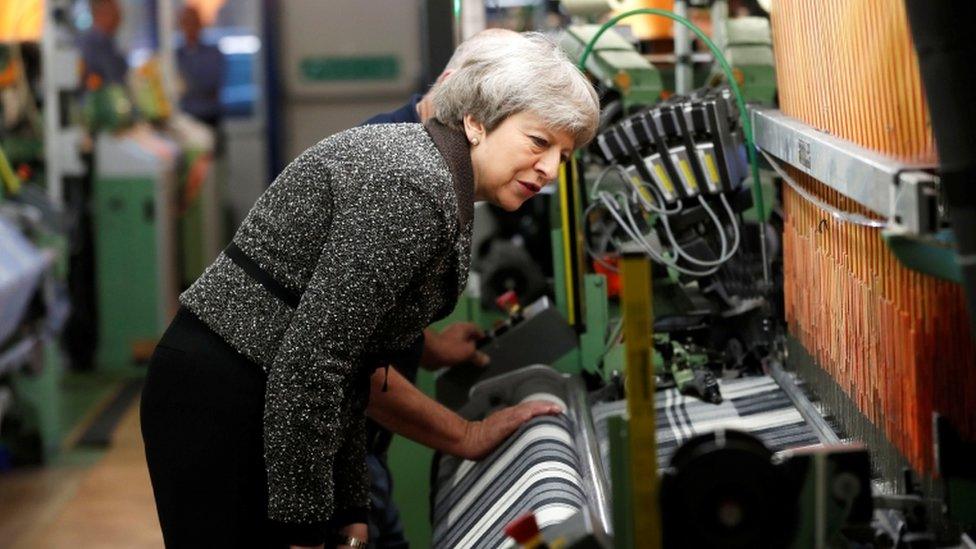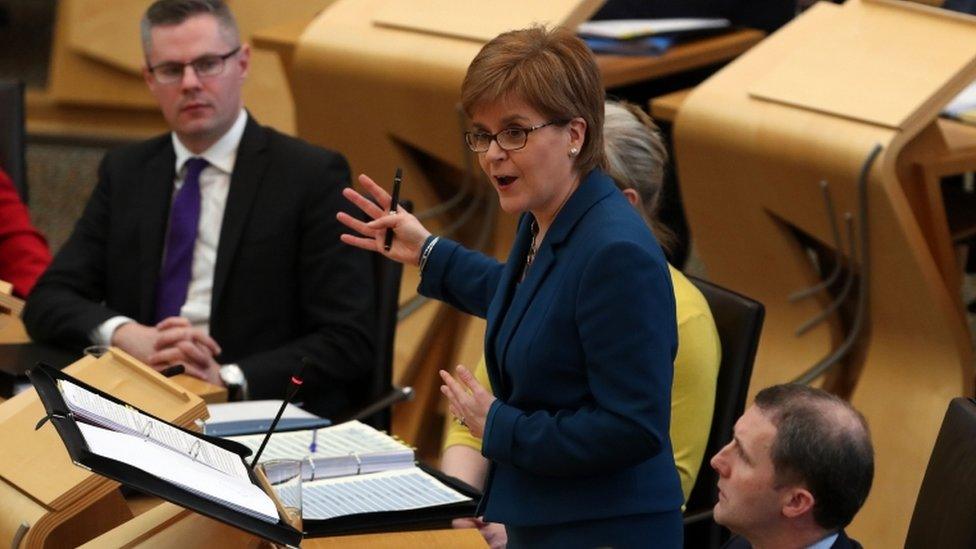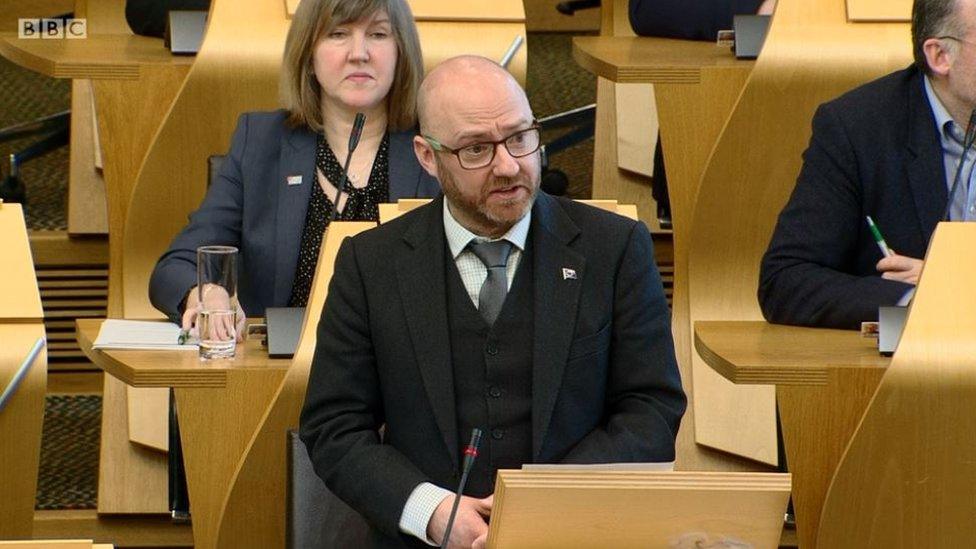FMQs: the Brexit countdown
- Published

Theresa May visited Ayr to mark one year until Brexit day
We know the word which sums up a commemoration of events one year back. That word is "anniversary". But is there a word for events yet to come, a year hence?
Not as far as I am aware. However, if you know better, please write to anyone other than me.
Still, we are one year out from Brexit. Or, to be precise, one year away from the point at which we enter the transition or implementation phase, prior to final departure.
Theresa May marked this momentous occasion by traversing the nations of the UK, starting at the crack of dawn in Ayr.
Her message from this sojourn, apart from vaunting her own endurance skills, was that said nations could benefit from Brexit - but only if they stay united.
This, of course, plays perfectly as a dog whistle for her own tribe. Or most of them. It chimes with the mantra that Brexit is coming and must be adapted to ensure maximum gain. And with the more familiar adherence to the Union.
Only a cynic would note that it sits rather less comfortably with the argument previously advanced by Remainers - including May, T. - that Brexit would be a mistake, economically and diplomatically.
However, the PM would retort that she must play with the hand dealt by the electorate in the EU referendum. Critics would say that the 2016 ballot, while mandating UK Brexit, did not specify the terms.
On her visit to Ayr, the PM inspected, with evident awe, the skills of a woman deftly scything the strands from beautiful cashmere scarves.
As Mrs May voiced her admiration, you could almost hear her thinking: "If only I could tie up the loose ends of Brexit with comparable dexterity."
For loose ends remain. The terms of a trade deal. Ireland. And, of course, the return of EU powers in devolved areas to these islands.

Nicola Sturgeon said the Tories would "never be forgiven" for Brexit
Theresa May has drawn considerable praise, from her own side at least, for securing the phase one deal and the transition arrangements. Again, only a cynic would suggest that these deals were secured by surrendering ground.
But the first minister suggests that it is Mrs May who is the obstacle in reaching a deal on devolved powers. Certainly, her statement today talked of the need to retain certain powers in London, at least initially, in order to maintain UK markets.
She could not, she suggested, leave such matters "to chance". That wording has gone down rather badly with Team Sturgeon who say it implies they cannot be trusted. Team May insist they intended no such slight: their focus was upon wise governance.
Discussions continue under the radar, conducted by sensible officials on both sides. Do I think there will be a deal? On balance, yes. I think the UK government could do with lessening the quantity of loose ends.
Robust exchanges
Then we turn to Holyrood. Nicola Sturgeon was particularly acerbic on the subject of Brexit and the Conservatives. It was a substantial blunder, she argued. The Tories would "never be forgiven".
This attack followed robust exchanges with Ruth Davidson, of the Conservatives. She cited arguments that Scotland's economic development structure was too unwieldy and was stifling growth.
Ms Sturgeon, who was in feisty mode, said her rival had a cheek when the biggest threat to the economy was Brexit, now endorsed by Ms Davidson despite her previous warnings.
Labour's Richard Leonard pursued the issue of the teachers' pay claim, indicating his readiness to join them on the picket line if necessary.

Patrick Harvie pressed the first minister on the issue of EU membership
But, when Patrick Harvie of the Greens got to his feet, we were back with Brexit. He posed a double challenge to the FM.
Would she continue to campaign against Brexit and would she support efforts to restore full Scottish membership of the EU, in the event that her efforts to forestall Brexit fell short?
Ms Sturgeon did not answer that point directly or, at least, not in those terms. Some in the wicked media - self included - thought that mildly significant.
However, to be clear, she did reiterate her entrenched opposition to Brexit. And she did posit Scotland's future as being a proud European nation.
Which, of course, still leaves open the question of how that pride can be expressed. Does it require full EU membership? Would that require membership of the Common Fisheries Policy, which the SNP cordially loathe?
To repeat, there is a degree of nuance in SNP / Scottish Government pronouncements on the topic of Europe yet to come. Again, to repeat, that is understandable: Brexit itself creates uncertainty.
Happy whatever-it-is called…